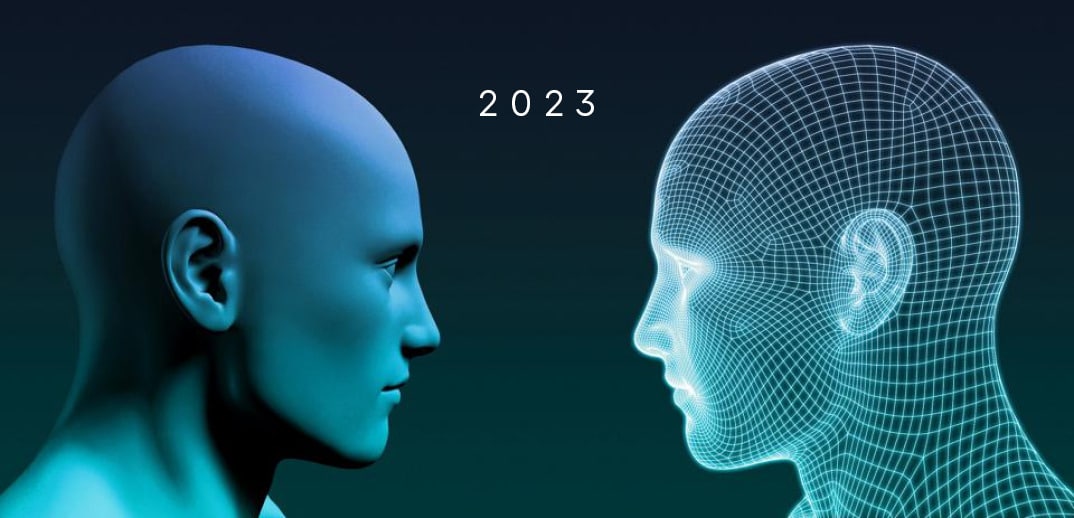For the past several years, there has been a deluge of macroeconomic events that have impacted our businesses and our lives. The pandemic forced digital transformation efforts to go into hyperdrive. Then, the Great Resignation wave rapidly moved across the labor force, exacerbating the pains of pandemic-affected companies. Next came the Ukraine-Russia war, which upended the global economy. Now, the looming recession has more organizations looking at where they can cut costs and how they can do more with less.
This confluence of events has created a talent dilemma, with no end in sight, and forced businesses to consider alternative sources for employment.
However, out of chaos comes opportunity, and that is where our 2023 predictions focus. We have spoken to business and technology leaders across the company to summarize what they see on the horizon for the year ahead. Our predictions look at broad technology trends and home in on what our financial crime experts anticipate the year ahead will bring to the banking and financial services industry.
1. A new type of “hybrid” work emerges as humans and AI work side by side
As the labor crisis extends into 2023 and beyond, employees will move beyond the fear of AI “coming for their jobs” and more readily adopt AI as their alternative colleague to form “fusion teams.” These fusion teams will have humans and AI working together. As organizations have struggled to fill open job requisitions, existing employees have had to pick up the slack, leading to burnout and mistakes. By leveraging an AI/ML-enabled digital workforce, both businesses and employees will reap the benefits.
2. AI gets responsible and explainable
AI is being used increasingly to make all types of decisions. Some of these decisions have more impact or importance on society than others. If a tool doesn’t write perfect copy (see ChatGPT) or an app doesn’t recognize a face, it’s not ideal and can impact a user experience — however, it has minimal impact on society. On the other hand, if AI is deciding what crops to pick, deciding who gets a loan from a bank, or deciding if someone committed a crime, these types of decisions can wreak havoc on people’s lives. Increasing regulatory scrutiny (Blueprint for an AI Bill of Rights and The AI Act) means that AI will need to be explainable. Explainable algorithms help organizations understand how the AI makes its decisions. For example, among financial institutions, practices like Model Risk Management (MRM) are about reducing the risk to the business and helping explain the AI. With explainable and responsible AI, you reduce the risk of litigation or compliance issues.
3. The demise of the Financial Crime analyst
With the rise of machine learning and Intelligent Automation and its increasing adoption in Financial Services, we anticipate the demise of the “Level 1” operations analyst. Day-to-day, these positions consist largely of repeatable, monotonous and time-consuming tasks; in other words, the exact processes that are ripe to be automated. This will have two major effects. Firstly, cost savings and efficiency gains will be enormous. Secondly, and perhaps not so obvious, is that those “Level 1” analysts will now be re-directed to more valuable work streams and create more value for the business.
4. Perpetual Know Your Customer (pKYC) finally realizes its potential
Financial institutions need to know who they are doing business with to limit their exposure to bad actors. Historically, huge case volumes were expensive and required global coordination, while manual approaches often generated poor customer experiences. With that said, whether it is for cost efficiency, customer experience, regulatory compliance, or a combination of all three, in 2023 traditional banks, challenger banks, and FinTechs alike will recognize that a continuous review cycle (pKYC) is necessary.
5. Companies earnestly lead with purpose
While there are already shining stars of ESG like Patagonia, more companies will define their purpose in the products and solutions they bring to market. People, and without question Gen Z, want to buy and invest in companies that show a demonstrable impact on improving the world. For banking and financial services organizations, this means that in addition to digital transformation efforts and a great customer experience, cracking down on AML and limiting the reach of bad actors, including Russian oligarchs, will demonstrate corporate responsibility.
While we don’t know for sure what the next year will bring, we are confident that 2023 will be the year of Intelligent Automation and AI-led solutions in the workforce. Intelligent Automation has the promise to help organizations combat the talent shortage, reduce employee burnout, increase capacity, mitigate risk, and help navigate any potential pivots and pitfalls that 2023 may bring.
To all of our customers, prospects, partners, and friends, we wish you a healthy and prosperous year ahead.
To learn more about WorkFusion’s AI-led Digital Workers, please schedule a demo at your earliest convenience.






























